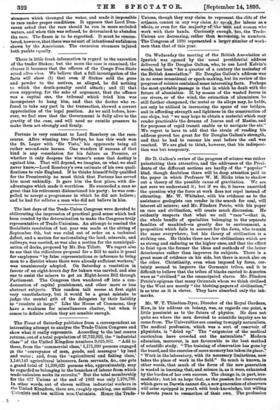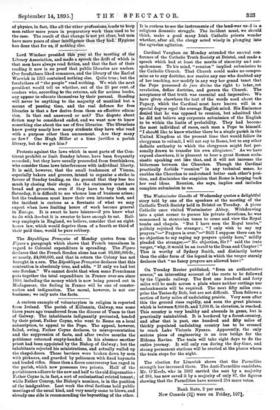Mr. W. T. Thiselton-Dyer, Director of the Royal Gardens, Kew,
in his address on botany, was, as regards one point, a little pessimist as to the future of physics. He does not quite see where the men devoted to scientific inquiry are to come from. The Universities are ceasing to supply naturalists. The medical profession, which was a sort of reservoir of physicists, is "dried up." The "exigencies of the medical curriculum have crowded out the naturalists." Modern education, moreover, is not favourable to the best method of scientific study. " The training of observation has gone by the board, and the exercise of mere memory has taken its place." " Work in the laboratory, with its necessary limitations, now takes the place of work in the field." So much is known, in other words, that much of the force of the new generation is wasted in learning that, and science is, as it were, exhausted by the burden of her own success. The change is, in part, irre- mediable; but let us hope that, as the passion for observation which gave us Darwin cannot die, a new generation of observers will arise equipped in youth with book-knowledge, but willing to devote years to researches of their own. The profession
of physics, in fact, like all the other professionn, tends to keep men rather more years in preparatory work than used to be the case. The result of that change is not yet clear, but men have more years of clear intelligence than they had. Hygiene has done that for us, if nothing else.



































 Previous page
Previous page